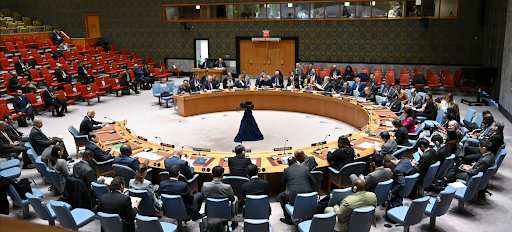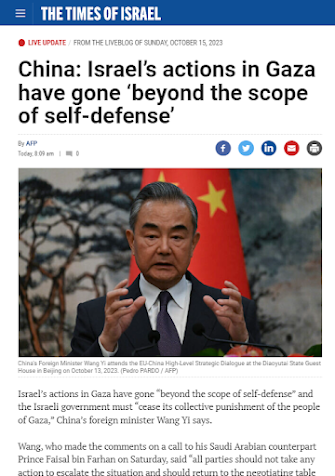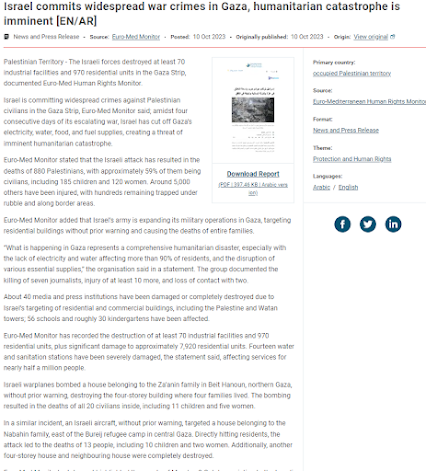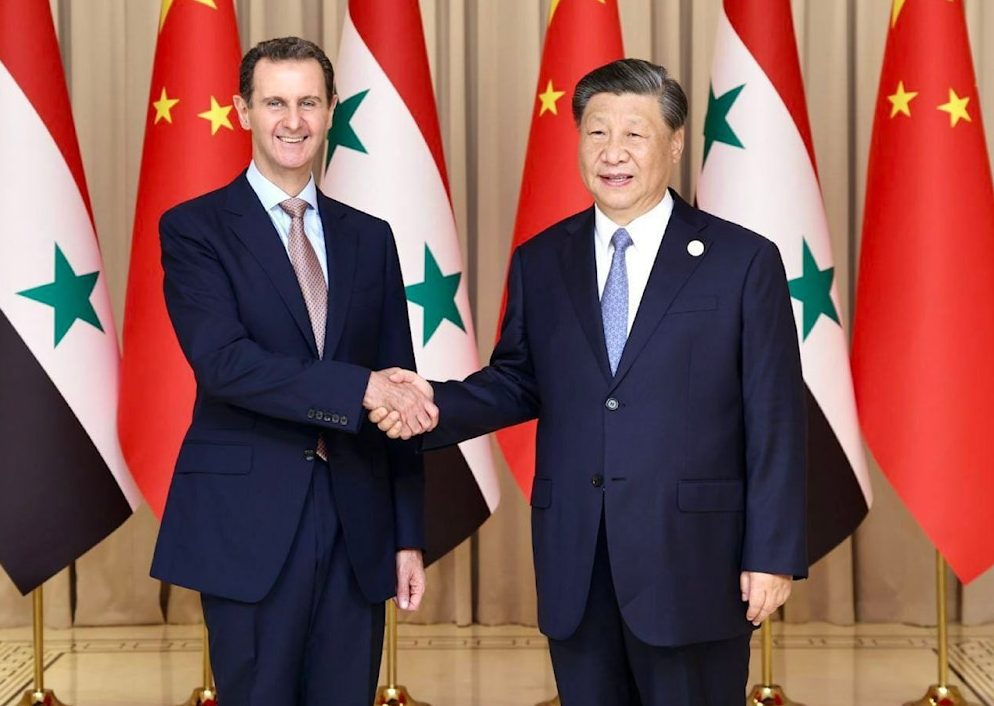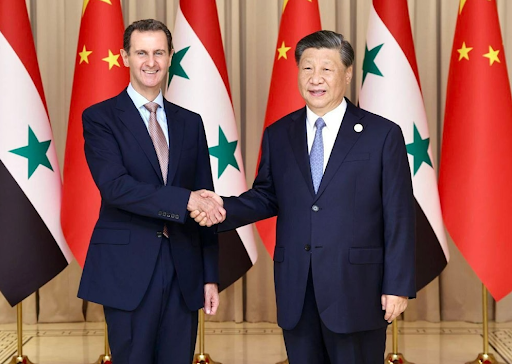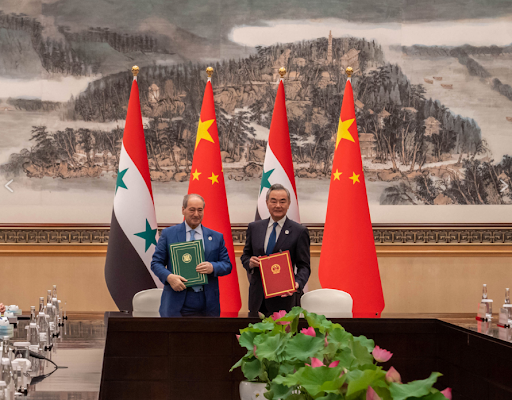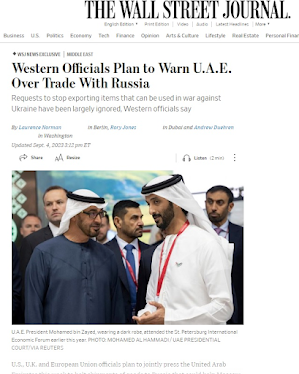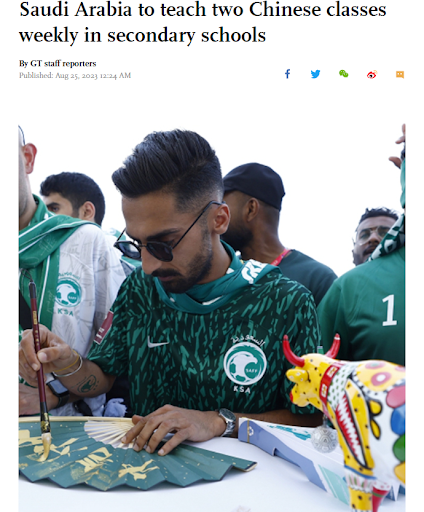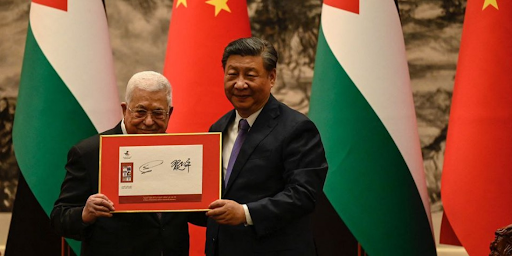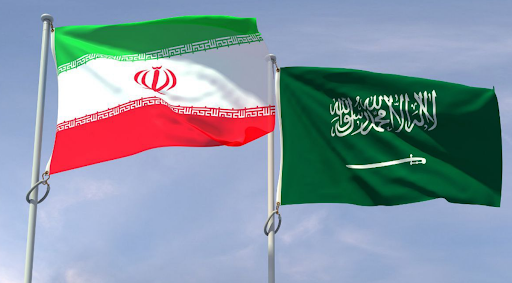
Was Biden angry with Netanyahu for attacking Iran’s diplomatic building, a treaty violation, or for killing aid workers, a war crime, or both?
There is no doubt that Iran can retaliate directly against Israel. It did so against the US when Trump assassinated Soleimani in January 2020. An Iranian retaliatory attack against Israel could set new course for the entire region, however.
If Iran attacks Israel directly, the right-wing government in Israel will be forced to retaliate or it will collapse. If it were to retaliate to the retaliation, the armed confrontation enters a new phase, similar to the active front with Hezbollah. That will be catastrophic for Israel for many reasons.Israel cannot invade Iran and if the US does not get involved directly, all Israel can do is to trade rockets and bombs from distance. That formular favors Iran for many reasons, too.
First, Iran is a much larger country, and its weapons systems are dispersed all over the country. It will not be possible for Israel to take out all weapons systems. If that was possible, US could have done that in Yemen where a much smaller and less prepared group, the Houthis, have overcome a military Western coalition that has been bombing them for months.
Second, Iran has a formidable array of weapons, rockets and drones, that can be launched for months or even years. In addition to these long-distance weapons, Iran can rely on its allies in Gaza, Lebanon, Yemen, and Iraq to provide support.
Iran will respond given that the highest authority in the country already stated that Iran will receive “a slap”. The question is whether US diplomacy will manage to limit Iran’s response to limits of Israel’s attack. That is, an attack on Israeli diplomatic missions and perhaps an attack on military installations in occupied territories to end the cycle. Iran has the option to attack Israel directly because it considers its diplomatic facilities sovereign territories of Iran. However, attacking Israel diplomatic facilities places Iran outside International norms, too, which it has been using to get the world community to condemn it.
All these factors give credence to the reporting about the US offer to Iran, possibly through Oman. Because all these indicator show that Israel committed a grave mistake when it attacked a diplomatic facility. It may not just US acting to prevent the widening of a conflict, it is likely that Israel wants to limit the damage too.
The following media reports provide more contect to what might be behind the scene negotiations.
Iranian diplomatic sources say the US is trying to convince Iran not to retaliate against Israel for its bombing of the Iranian embassy in Syria earlier this month, Al-Jarida newspaper reported on 8 April.The Israeli strike targeted a building attached to the Iranian embassy in Damascus. It led to the killing of the commander of the Quds Force of the Islamic Revolutionary Guard Corps (IRGC), Brigadier General Mohammad Reza Zahedi, his deputy, and five other IRGC officers.
A source in the Iranian foreign ministry told Al-Jarida that Washington offered Tehran direct negotiations with Tel Aviv to de-escalate the conflict.
According to the source, Washington will guarantee to persuade Tel Aviv to stop its military operations in Syria and Lebanon on the condition that Iran commit not to retaliate against Israel for the Damascus attack.
At the same time, a diplomatic source in Beirut told Al-Jarida that Israeli Prime Minister Benjamin Netanyahu rejected an American proposal to pledge to stop attacks in Syria.The source added that Iranian leader Ali Khamenei is reviewing the US offer but is not expected to accept it if it does not include guarantees for a comprehensive ceasefire in Gaza and to stop all Israeli and US attacks on Iranian targets or those belonging to Iran's allies in the Axis of Resistance.
The source revealed that the Iranians had also previously received a verbal Israeli proposal via a Gulf state. In the proposal, Tel Aviv claimed it was ready to stop operations against Iranian targets in Syria and Lebanon in exchange for Tehran abandoning retaliation for the killing of Zahedi, whose killing was considered the most significant blow to Iran since the assassination of Qassem Soleimani.
According to the source, the Iranian Foreign Ministry responded to the Israeli message by saying that the proposal must also include a ceasefire in Gaza.
However, some IRGC leaders were unhappy with the foreign ministry's response, viewing the Israeli proposal as a trap. The IRGC leaders argued that any negotiations with Israel must take place only after Iran has retaliated.
The source stated that IRGC commanders believe that Israel's targeting of the Iranian consulate is an opportunity that should not be missed to strike a strong blow at Israel, especially since the consular building in Damascus is considered sovereign Iranian territory and was targeted in a clear violation of international law.
The source said that the IRGC leadership believes Washington will not enter a war with Iran even if it retaliates against Israel. They also consider that an adequately harsh strike against Israel will compel it to accept a ceasefire in Gaza and abandon any plans to invade Lebanon or escalate its bombing in Syria.
Western government continue to lose credibility
Despite the fact that the attack on Iran’s diplomatic mission in Syria violated global treaties including the Vienna Conventions regulating diplomatic and consular relations and the immunities of diplomats and headquarters (1961, 1963, 1969) and the Rome Statute, US government and its Western allies did not explicitly condemn the attack. Instead, they called on Iran to exert “self-restraint.”
On Thursday, the German Foreign Ministry called, through a statement, on all parties in the Middle East to calm down, exercise restraint, and act responsibly, following a call by Minister Annalena Baerbock who discussed the matter with Iranian Foreign Minister Hossein Amir Abdollahian.
On Thursday, British Foreign Secretary David Cameron warned of “expanding conflicts”. During a phone call with his Iranian counterpart, Hossein Amir Abdollahian, according to a statement by the Iranian Foreign Ministry that was reported by local media outlets, including the private “Tasnim” agency.
According to the agency, the Iranian Foreign Ministry quoted Cameron as saying that he asked Iran to exercise restraint, and said that “lack of restraint on the part of the parties could lead to further expansion of conflicts in the region.”
Regional powers on the other hand voiced condemnation, directly accusing Israel of violating international norms.
Turkey denounced, in a Foreign Ministry statement, the bombing and considered it a violation of international law, warning that the attack may lead to an exacerbation of the conflict in the region.
Saudi Arabia also condemned the targeting in a Foreign Ministry statement, expressing its “categorical rejection of targeting diplomatic facilities for any justification, and under any pretext.”
In a brief Foreign Ministry statement, the UAE condemned “the targeting of the Iranian diplomatic mission in the Syrian capital, Damascus,” without any additional comment.
Qatar also condemned, in a Foreign Ministry statement, the attack, and considered it “a blatant violation of international agreements and conventions,” stressing “its complete rejection of targeting diplomatic and consular missions and the necessity of providing protection for their employees in accordance with the rules of international law.”
Egypt said, in a statement to the Foreign Ministry, “We categorically reject the attack on diplomatic facilities under any justification, and we stand in solidarity with Syria in respecting its sovereignty and the integrity of its lands and people.”
Kuwait also considered, in a Foreign Ministry statement, the attack a “flagrant assault,” renewing its call on “the international community and the Security Council to assume its responsibilities towards taking the necessary measures and exerting the necessary efforts to preserve the safety and stability of the countries of the region and reduce tension and escalation.”
In a statement condemning the attack, the Omani Foreign Ministry stressed “the need to stop the escalation in the region and reject aggression and other actions that threaten security and stability,” expressing condolences to the families of the victims and wishing a speedy recovery to the injured.
Iraq also confirmed in a Foreign Ministry statement that the attack “represents a clear and flagrant violation of international law and Syrian sovereignty,” warning that “the expansion of the cycle of violence in the region will lead to more chaos and instability.”
China and Russia, on the other hand, took advantage of Western reluctance to denounce the flouting of international law







